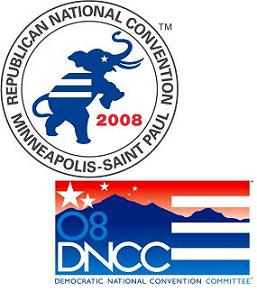 The West Lafayette, Indiana Police Department is trying to help their budget by using E85 in their seven new FFV squad cards. The department reportedly spends between $11K and $12k a month for fuel.
The West Lafayette, Indiana Police Department is trying to help their budget by using E85 in their seven new FFV squad cards. The department reportedly spends between $11K and $12k a month for fuel.
“The price is right now to give it a try,” said Police Chief Jason Dombkowski. “Looks like a dollar savings per gallon. We think we can save up to $1,000 a month on fuel consumption costs.”
Although the department realizes there is less energy in E85 than gasoline (equating to less miles per gallon when using the alternative fuel), they receive a significant discount in the price making it adventageous to purchase E85.
The FFV Ford Crown Victorias will use E85 for 60 days and if they see a cost savings, will consider converting much of their fleet to E85 compatible.
“We are going to try to go straight E85 flex fuel for now and analyze and see how cars are doing for our needs,” said Dombkowski. “At the end of the summer if gas prices are still what they are and we’re getting the results we need we may do some conversion.”


 In
In  The secretaries answered six specific questions related to the production of ethanol and biodiesel and the price of both food and fuel. Regarding food, they responded that biofuels accounted for approximately 3-4 percent of the overall rise in retail food prices domestically and as much as five percent globally. They note the many other factors contributing to higher commodity prices, including increased demand for food; lowered production and reduced stocks due to weather; export restrictions and – record prices for gasoline and diesel fuel that have increased “the costs of producing, transporting, and processing food products.”
The secretaries answered six specific questions related to the production of ethanol and biodiesel and the price of both food and fuel. Regarding food, they responded that biofuels accounted for approximately 3-4 percent of the overall rise in retail food prices domestically and as much as five percent globally. They note the many other factors contributing to higher commodity prices, including increased demand for food; lowered production and reduced stocks due to weather; export restrictions and – record prices for gasoline and diesel fuel that have increased “the costs of producing, transporting, and processing food products.” Officials with the
Officials with the  Moving to second generation ethanol production is obviously a priority for the nation’s ethanol producers.
Moving to second generation ethanol production is obviously a priority for the nation’s ethanol producers. American motorists are rethinking their driving habits. That is, according to a
American motorists are rethinking their driving habits. That is, according to a  The 8th race of the 2008 IndyCar racing season is less than two weeks away. IndyCar Drivers hit the track for the 2008 Iowa Corn Indy 250 Sunday June 22nd. The track buzz isn’t just about racing though. The Ethanol Promotion and Information Council has a handful of activities set up for race weekend.
The 8th race of the 2008 IndyCar racing season is less than two weeks away. IndyCar Drivers hit the track for the 2008 Iowa Corn Indy 250 Sunday June 22nd. The track buzz isn’t just about racing though. The Ethanol Promotion and Information Council has a handful of activities set up for race weekend.  Solazyme is about to make history as the first algae-biodiesel maker to meet stringent standards that diesel fuel must meet.
Solazyme is about to make history as the first algae-biodiesel maker to meet stringent standards that diesel fuel must meet. The leaders from the two biggest biofuels groups in the country are countering what they term as a smear campaign against the benefits of biodiesel and ethanol by the nation’s grocers.
The leaders from the two biggest biofuels groups in the country are countering what they term as a smear campaign against the benefits of biodiesel and ethanol by the nation’s grocers. “With oil prices up more than 100 percent in the last 12 months, it is wrongheaded for groups to attack biofuels which represent one of the few components of US energy policy that is actually working. Biofuels are currently contributing over 8 billion gallons of fuel to our fuel supply, without which fuel prices, and consequently food prices, would be even higher than they already are.”
“With oil prices up more than 100 percent in the last 12 months, it is wrongheaded for groups to attack biofuels which represent one of the few components of US energy policy that is actually working. Biofuels are currently contributing over 8 billion gallons of fuel to our fuel supply, without which fuel prices, and consequently food prices, would be even higher than they already are.” “It’s time for some truth in advertising from the world’s largest food processors. Instead of smearing American farmers and the only fuel that is backing out foreign oil, why aren’t GMA and its allies pointing to the skyrocketing price of oil as the main cause of increasing food prices and the main reason American’s have less to spend.
“It’s time for some truth in advertising from the world’s largest food processors. Instead of smearing American farmers and the only fuel that is backing out foreign oil, why aren’t GMA and its allies pointing to the skyrocketing price of oil as the main cause of increasing food prices and the main reason American’s have less to spend.
 After a long primary season, the presumptive Democratic and Republican nominees for president continue to expend plenty of hot air… and probably will continue to do so through Election Day in November. Now, maybe some of that wind will actually power their conventions.
After a long primary season, the presumptive Democratic and Republican nominees for president continue to expend plenty of hot air… and probably will continue to do so through Election Day in November. Now, maybe some of that wind will actually power their conventions. Xcel said the two, week-long conventions combined would use about 3,000-megawatt hours of power. The donated wind power is worth about $30,000, a utility spokesman said.
Xcel said the two, week-long conventions combined would use about 3,000-megawatt hours of power. The donated wind power is worth about $30,000, a utility spokesman said.